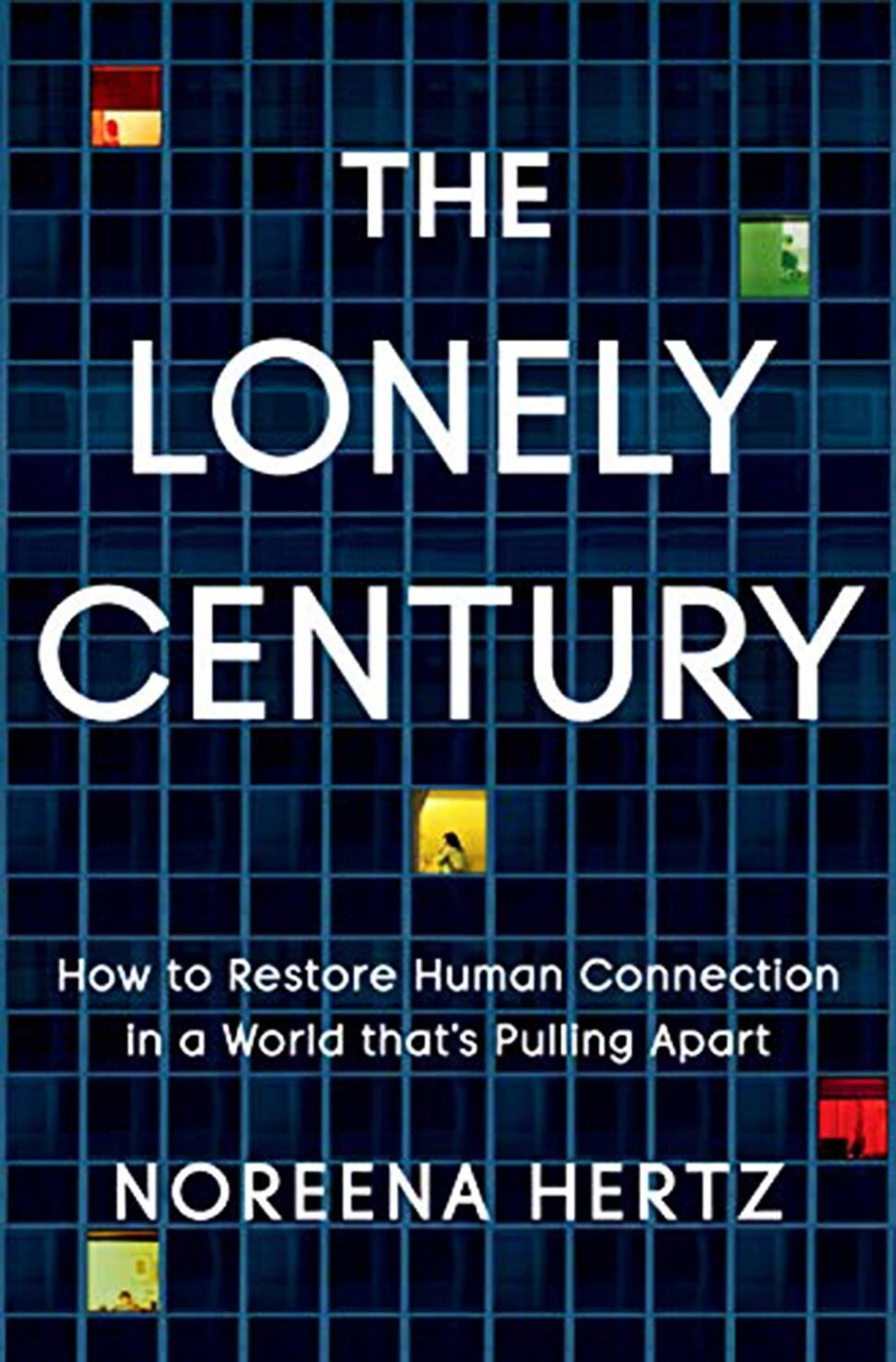
Review | What you should know about loneliness, and how to overcome it
- In The Lonely Century, author Noreena Hertz explains how the epidemic of loneliness has been growing for 40 years as individualism grew while community faded
- With 40 per cent of workers saying they feeling lonely, the blame may lie in our 996 work culture and social media, with most of us spending more than three hours each day on our smartphones
The Lonely Century by Noreena Hertz, Sceptre, 3.5/5 stars
Are you feeling lonely? If you’re reading this in Hong Kong, there is a 50 per cent chance the answer is yes. If you’re at work in China, the odds are rather better than 2:1. Never fear. You might be lonely, but you are not alone. Forty per cent of office workers across the globe say they feel much the same. In Britain, the figure is as high as 60 per cent.
Of course, statistics only go so far, although it is mind-boggling to learn that an estimated 58 million “empty nest youths” – young, unmarried urbanites – live alone in Chinese cities. Or that loneliness is as harmful to your physical health as smoking 15 cigarettes a day.
But if your heart strings need plucking, remember Han Zicheng, who survived the Cultural Revolution but couldn’t endure lonely old age in Tianjin. In 2017, he stuck a notice on a bus stop begging to be adopted by a kind-hearted person. Han died three months later, aged 85.
Or how about Japan’s Tochigi prison, which is full of women over 65 who break the law deliberately because incarceration is better than a life of intense isolation.
According to The Lonely Century, a thought-provoking book by Noreena Hertz, all this loneliness says a lot about who we are, what we want and what we spend most of our waking hours doing.

01:31
‘Yogurt ladies’ deliver companionship to the elderly in South Korea
This can be summarised more or less as: endless work (probably in an expensive and, almost ironically, overcrowded city), struggling to form relationships, and struggling even harder to see our kids if we do find a partner.
Oh, I almost forgot our most time-consuming activity: playing with our smartphones. And this was before Covid-19 drove us into even more segregated personal spaces at least two metres (6.6 feet) squared.
Hertz had actually finished The Lonely Century before the pandemic, but managed to update her manuscript and assess its impact before publication. It turns out 2020’s “new normal” of self-isolated working, living, playing, learning and shopping #alonetogether isn’t new at all.
Feeling alone in a crowd? Three books to read about loneliness
Setting aside broader philosophical questions of existential solitude and increasing secularisation, Hertz defines loneliness less as a state of mind and more as a product of the increasingly dominant virtual, globalised 21st century mega-state.
This doesn’t mean loneliness isn’t personal, but now it’s also “societal, economic and political” – a systemic and systematic form of alienation shaped by “globalisation, urbanisation growing inequality and power asymmetries, by demographic change, increased mobility, technological disruption, austerity and now by the coronavirus too”.
Key indicators of this bureaucratic loneliness are feeling “unsupported and uncared for by our fellow citizens, our employers, our community, our government”. Sound familiar?

Well, according to The Lonely Century, it should. This erosion of trustworthy connections to leaders, bosses, local communities and each other has been four decades in the making.
For Hertz, the origins can be found in the neoliberal economic and political experiments of the 1980s, sparked by Ronald Reagan and Margaret Thatcher.
This reinvigorated focus on the individual bred a new kind of individualism, an ultra-competitive, dog-eat-dog ethos in which trickle-down economics drowned the welfare state, and survival-of-the-fittest (or at least most privileged) economics destroyed old-school community support.
Covid-19 and work from home getting you down? Your boss can help
Even music wasn’t immune. The “we/us” pronouns that dominated 70s chart-toppers (Queen’s WE are the Champions, David Bowie’s WE Could be Heroes) have been replaced by I, me, mine: see Kanye West’s I am a God or Ariana Grande’s thank u, next, in which “u” translates as “Ariana Grande”. This trend is repeated across the world, including China.
None of this escalating atomisation, introversion, narcissism and disaffection would be possible without technology. Hertz is hardly the first to wag her finger at social media, but her reminder that most of us spend more than three hours each day fiddling with our phones (that’s 1,200 hours a year) is, frankly, chilling.
Add in the increasingly de rigueur 996 work culture (9 to 9, 6 days a week, in case you are too tired to work this out) and is it any wonder we don’t have time to talk to our loved ones, let alone anyone else?

The Lonely Century is timely, persuasive and occasionally moving, especially when Hertz supplements her exhaustive, and occasionally exhausting, research (the 130 pages of notes) with first-hand anecdotes: the man who lives in his car to finance an addiction to hiring professional huggers.
If the challenges Hertz emphasises come as little surprise (AI, surveillance, virtual porn), then neither are her solutions: democracy, social diversity, a more flexible work life, political and economic transparency, tech corporations taking greater responsibility for content, investment in building local communities.
Oh, and smiling at one another on the street. Hardly groundbreaking, but that doesn’t mean we shouldn’t try. So here goes: take care, my friend, and have a safe and happy day out there.

